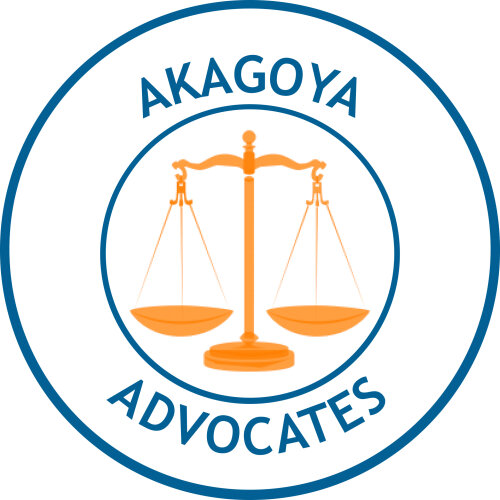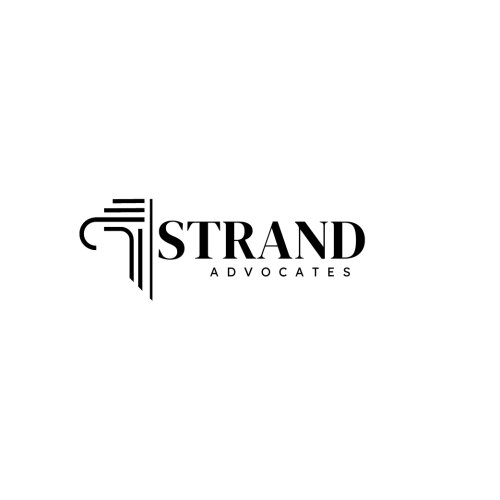Best Asylum Lawyers in Uganda
Share your needs with us, get contacted by law firms.
Free. Takes 2 min.
Or refine your search by selecting a city:
List of the best lawyers in Uganda
About Asylum Law in Uganda
Asylum law in Uganda is primarily governed by the Refugees Act of 2006. This legislation outlines the procedures and protections available to individuals seeking asylum in the country. Uganda is known for its welcoming stance towards refugees, and it is committed to providing refuge and protection to individuals fleeing persecution or conflict in their home countries. The Office of the Prime Minister (OPM) is the government body responsible for handling asylum applications, ensuring that the rights and safety of refugees are maintained throughout the process.
Why You May Need a Lawyer
While Uganda has a relatively straightforward process for asylum seekers, navigating legal requirements can be complex and overwhelming, especially for those unfamiliar with the local legal system. Here are common scenarios where a lawyer's assistance may be crucial:
- Understanding eligibility criteria for asylum.
- Preparing and submitting asylum applications or appeals if denied.
- Handling language barriers or cultural differences during legal proceedings.
- Dealing with potential legal disputes or misunderstandings regarding refugee status.
- Accessing rights and services available to refugees and asylum seekers.
Legal assistance can ensure that asylum seekers receive fair treatment and that their applications are adequately represented and documented.
Local Laws Overview
The key aspects of local laws regarding asylum in Uganda include:
- Refugees Act of 2006: This act governs the administration of refugee protection and the process for asylum applications.
- Eligibility Criteria: Individuals must demonstrate a well-founded fear of persecution due to race, religion, nationality, membership in a particular social group, or political opinion.
- Office of the Prime Minister (OPM): Responsible for processing asylum claims and providing refugee status determinations.
- Rights and Obligations: Refugees in Uganda have the right to work, access public services, and integration opportunities, subject to certain conditions.
- Assistance Programs: Various non-governmental organizations (NGOs) work alongside the Ugandan government to offer support in education, health, and livelihood projects.
Frequently Asked Questions
1. What is the difference between a refugee and an asylum seeker?
An asylum seeker is an individual who is seeking international protection but whose claim has not yet been determined. A refugee is an asylum seeker whose claim for protection has been accepted and they have been granted refugee status.
2. How do I apply for asylum in Uganda?
You can apply for asylum at the border or upon arrival at designated refugee reception centers. The Office of the Prime Minister will register and process your application.
3. How long does the asylum process take in Uganda?
The duration of the asylum process can vary. It may take several months depending on various factors, including the complexity of the case and any need for further verification of provided information.
4. Can I work in Uganda while my asylum application is being processed?
Yes, asylum seekers have the right to work in Uganda. However, it is beneficial to have legal assistance to ensure compliance with all employment-related regulations.
5. What happens if my asylum application is denied?
If your asylum application is denied, you have the right to appeal the decision. It is highly recommended to seek legal advice to assist with the appeals process.
6. Are there any fees involved in the asylum application process?
There are generally no fees for submitting an asylum application in Uganda. However, obtaining legal assistance or other services may incur costs.
7. Can I bring my family with me if I am granted asylum in Uganda?
Yes, family reunification is allowed under Ugandan law, enabling recognized refugees to bring close family members into the country.
8. What are my rights as an asylum seeker in Uganda?
Asylum seekers have the right to work, access basic health care, education, and other essential services, similar to Ugandan citizens, pending the outcome of their application.
9. How can I prove my identity if I've lost my documents?
If you are unable to provide documentation, the OPM may accept credible testimony or alternative evidence of identity. Legal assistance can help gather and present necessary evidence.
10. Can my refugee status be revoked?
Yes, refugee status can be revoked if there are significant changes in your home country or if you are found to have committed serious crimes. Legal advice is crucial in such situations.
Additional Resources
Consider reaching out to the following resources for additional support:
- Office of the Prime Minister: Responsible for managing refugee affairs and processing asylum applications.
- United Nations High Commissioner for Refugees (UNHCR): Offers protection and assistance to asylum seekers and refugees.
- Refugee Law Project: Provides legal advice and support to refugees and asylum seekers in Uganda.
- InterAid Uganda: This organization assists with settlement, advocacy, and legal counseling for refugees.
- Local NGOs and Community Organizations: Many local organizations provide aid, including counseling, education, and vocational training for refugees.
Next Steps
If you need legal assistance with your asylum application in Uganda, consider taking the following steps:
- Contact reputable legal aid organizations or NGOs that specialize in refugee law for advice and support.
- Schedule a consultation with a lawyer specializing in asylum cases to understand your options and prepare your application thoroughly.
- Keep a record of all communications with government authorities and any documents you submit during the process.
- Attend scheduled interviews or hearings promptly and be prepared to present your case honestly and effectively.
- Stay informed about your rights and responsibilities as an asylum seeker or refugee in Uganda to ensure full compliance with local regulations.
Lawzana helps you find the best lawyers and law firms in Uganda through a curated and pre-screened list of qualified legal professionals. Our platform offers rankings and detailed profiles of attorneys and law firms, allowing you to compare based on practice areas, including Asylum, experience, and client feedback.
Each profile includes a description of the firm's areas of practice, client reviews, team members and partners, year of establishment, spoken languages, office locations, contact information, social media presence, and any published articles or resources. Most firms on our platform speak English and are experienced in both local and international legal matters.
Get a quote from top-rated law firms in Uganda — quickly, securely, and without unnecessary hassle.
Disclaimer:
The information provided on this page is for general informational purposes only and does not constitute legal advice. While we strive to ensure the accuracy and relevance of the content, legal information may change over time, and interpretations of the law can vary. You should always consult with a qualified legal professional for advice specific to your situation.
We disclaim all liability for actions taken or not taken based on the content of this page. If you believe any information is incorrect or outdated, please contact us, and we will review and update it where appropriate.
Browse asylum law firms by city in Uganda
Refine your search by selecting a city.

















